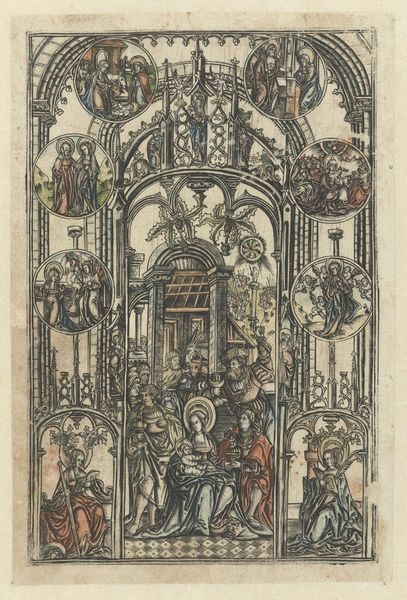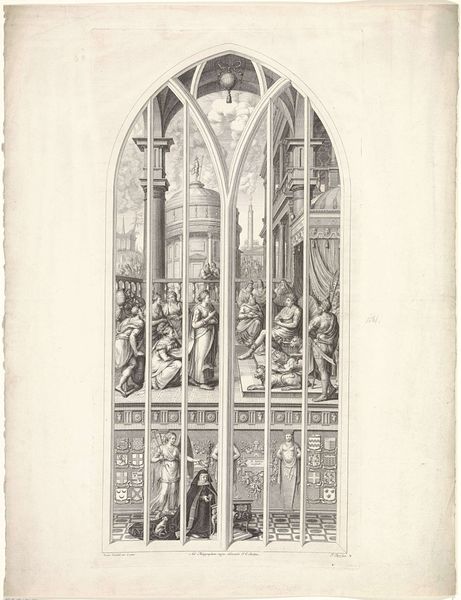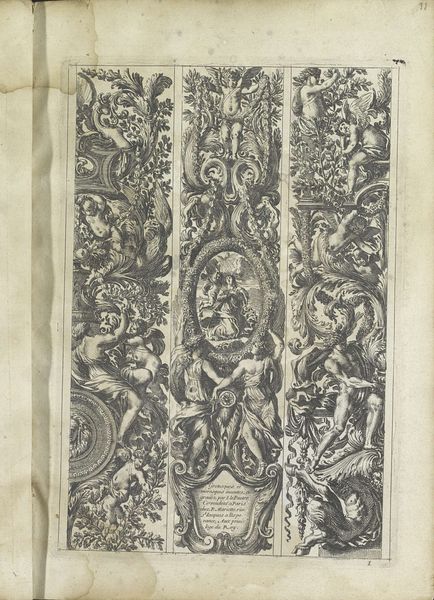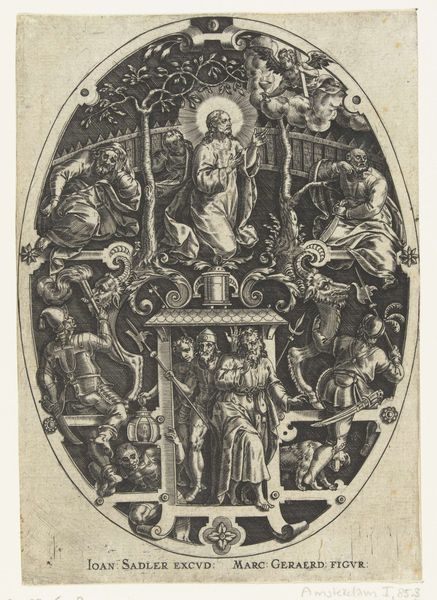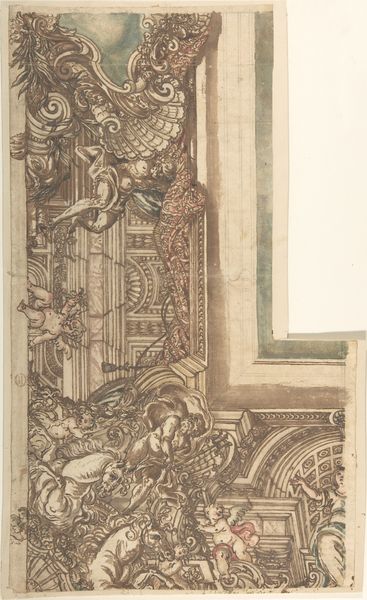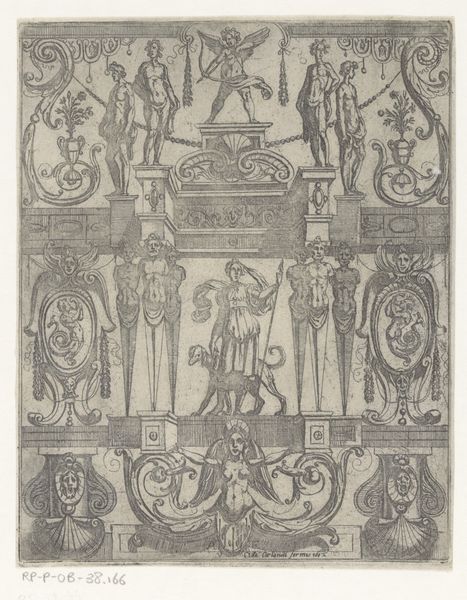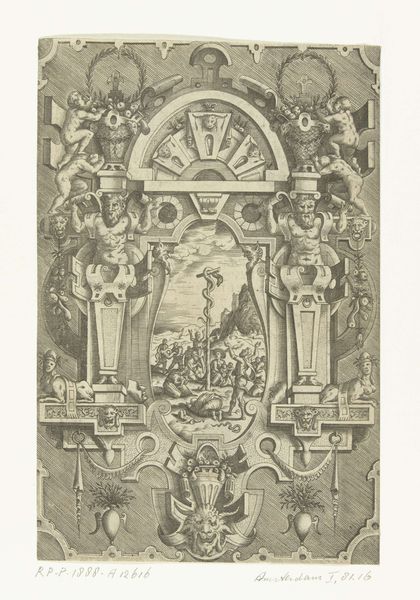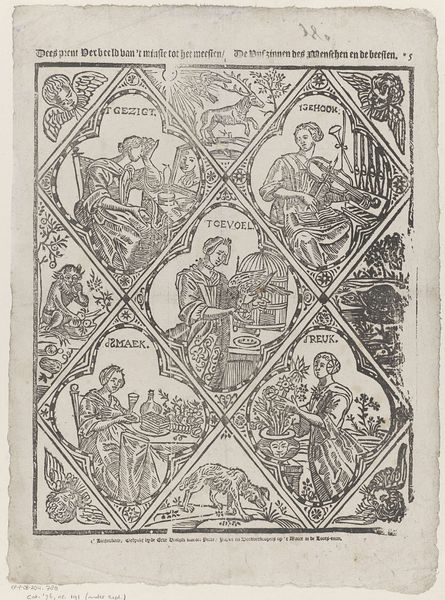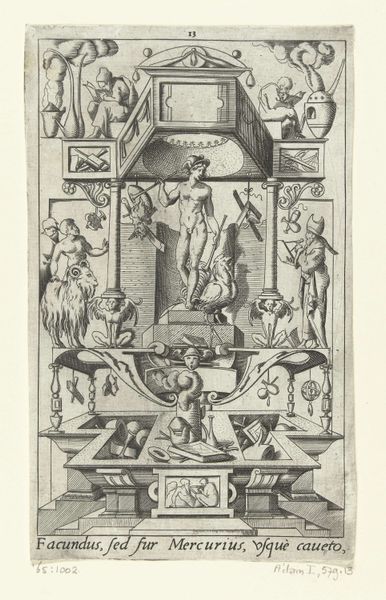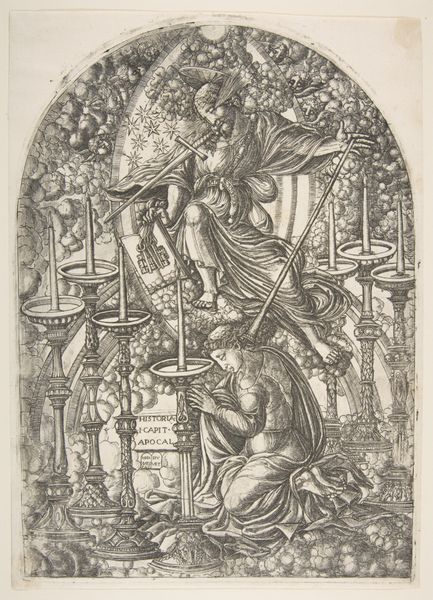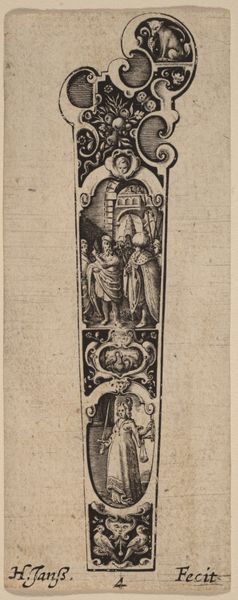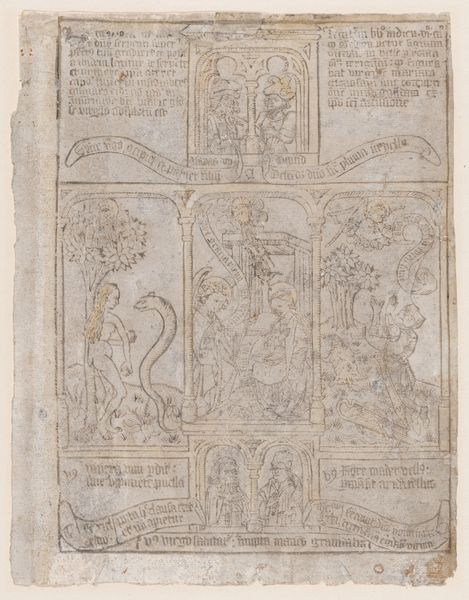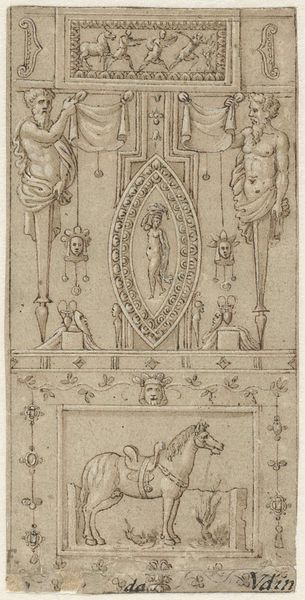
Christus en de cijnspenning, met een portret van Keizer Karel V 1542 - 1549
0:00
0:00
dirckpieterszcrabeth
Rijksmuseum
drawing, ink, pen, engraving
#
drawing
#
narrative-art
#
charcoal drawing
#
figuration
#
11_renaissance
#
ink
#
pen-ink sketch
#
pen
#
history-painting
#
northern-renaissance
#
engraving
Dimensions: height 371 mm, width 178 mm
Copyright: Rijks Museum: Open Domain
Dirck Pietersz. Crabeth designed this stained-glass window with silver stain and translucent paint, a technique that required immense skill. Look closely, and you’ll see the window is divided into multiple scenes. The story goes that Jesus is confronted by the Pharisees, who ask whether it is lawful to pay taxes to Caesar. His reply, ‘Render unto Caesar the things which are Caesar’s, and unto God the things that are God’s’ is a classic statement about the relationship between spiritual life and political authority. Stained glass windows required a team of makers, each with their own specialty. These ranged from the initial design of the window, to the cutting of the glass, painting, and finally the leading. The amount of labor involved was considerable, yet it was a communal effort, with all of the artisans contributing to the final artwork. The materiality and making of this window is just as crucial as its religious meaning. By emphasizing the labor and materials involved, we appreciate the true value and complexity of this stunning work.
Comments
No comments
Be the first to comment and join the conversation on the ultimate creative platform.
